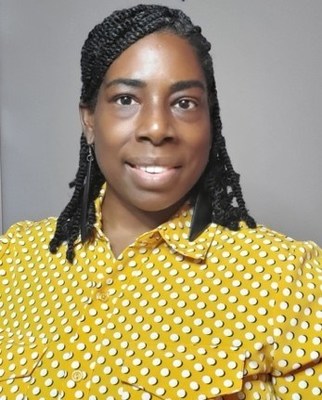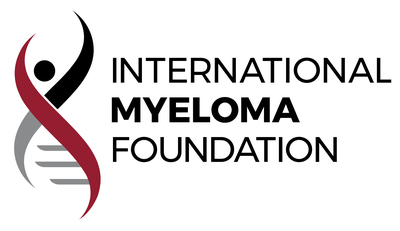International Myeloma Foundation Launches Atlanta-Area Initiative to Raise Awareness, Encourage Earlier Diagnoses in the African-American Community

LOS ANGELES, Oct. 28, 2021 /PRNewswire/ — The International Myeloma Foundation (IMF) is launching an initiative in Atlanta and surrounding areas to change the course of multiple myeloma by removing barriers to early diagnosis and treatment in the African-American community.
On Saturday, November 13, a free, online workshop will kick off the initiative, which is called M-Power Atlanta to emphasize the “empowering” of patients, families, and healthcare professionals that is vital in order to improve outcomes in this disease.
Atlanta patient advocate Jameca Barrett was diagnosed with myeloma, a cancer of the blood plasma cells, when she was just 26. The average age of onset of the disease is 70, but is 66 in African Americans. At first, she says, “I felt overwhelmed.” But she quickly became educated about the disease. “Your wellness team—especially your primary care physician and oncologist—have the knowledge that will guide you towards what is best for you, and what isn’t,” she points out.
Barrett joined an Atlanta myeloma support group, and before long, she became an active advocate for policies that impact cancer patients. She will be a featured panelist at the virtual November 13th M-Power Atlanta Community Workshop (register here to attend), sharing her personal story to help raise awareness about the elevated risk of myeloma in the African-American community.
A cancer of the blood plasma cells that will strike more than 30,000 adults in the U.S. this year, myeloma is the most common blood cancer in African Americans and is more than twice as common in people of African descent as in other races and ethnicities. But the good news is that early detection and access to treatment can improve survival.
M-Power’s key message? Getting a myeloma diagnosis as early as possible and treating the disease before it progresses is the best way to improve survival, says Dr. Joseph Mikhael, Chief Medical Officer of the IMF.
“The latest research data show that African-American myeloma patients do well when barriers to early diagnosis and treatment are eliminated,” says Dr. Mikhael. “These findings have been our organization’s call to action to raise awareness.”
According to Dr. Mikhael, doctors do not typically check people for myeloma during a regular visit because currently there are no national screening recommendations for myeloma. Complicating a myeloma diagnosis is that some of the disease’s early symptoms—back pain, extreme fatigue, recurring infections, worsening shortness of breath—are similar to those of other conditions.
“That’s why it is so important for African Americans to learn about the early symptoms of myeloma and let their doctors know that they are at higher risk for the disease during regular check-ups.”
At the workshop, Jameca Barrett will compare her myeloma journey to the process of navigating MARTA, Atlanta’s public transportation system. “With the right map,” she says, “you’ll be your best medical care advocate. But you can’t always do it alone. So you need to ask for help.”
ATTEND A FREE, VIRTUAL MYELOMA WORKSHOP
To spread the word about the risk and impact of multiple myeloma in the African-American community, the IMF is presenting a free, virtual myeloma workshop Saturday, November 13, 10 a.m. ET:
- Register now for a free myeloma education workshop featuring a panel of leading experts, including Dr. Ajay K. Nooka and Charise Gleason, MSN, NP-C, AOCNP (both from Winship Cancer Institute, Emory University), Dr. Joseph Mikhael, and patient advocate Jameca Barrett. Topics will include: Myeloma Made Simple, Managing Symptoms and Side Effects, and Race Matters in Myeloma Care and Survival.
ABOUT MULTIPLE MYELOMA
Multiple myeloma is a cancer of the bone marrow plasma cells—white blood cells that make antibodies. A cancerous or malignant plasma cell is called a myeloma cell. Myeloma is called “multiple” because there are frequently multiple patches or areas in bone where it grows. It can appear as both a tumor and/or an area of bone loss, and it affects the places where bone marrow is active in an adult: the hollow area within the bones of the spine, skull, pelvis, rib cage, and the areas around the shoulders and hips.
ABOUT THE INTERNATIONAL MYELOMA FOUNDATION
Founded in 1990, the International Myeloma Foundation (IMF) is the first and largest foundation focusing specifically on multiple myeloma. The Foundation’s reach extends to more than 525,000 members in 140 countries worldwide. The IMF is dedicated to improving the quality of life of myeloma patients while working toward prevention and a cure by focusing on four key areas: research, education, support, and advocacy. The IMF has conducted more than 250 educational seminars worldwide, maintains a world-renowned InfoLine, and in 2001, established the International Myeloma Working Group (IMWG), a collaborative research initiative focused on improving myeloma treatment options for patients. In 2012, the IMF launched the Black Swan Research Initiative®, a groundbreaking research project aimed at curing myeloma. The IMF can be reached at (800) 452-CURE (2873). The global website is www.myeloma.org. Follow the IMF on Twitter @IMFmyeloma.
Contact: Debra Gendel, IMF
debra@cashmereroad.com
310.710.1903
Contact: Sapna Kumar, IMF
skumar@myeloma.org
818.487.7455 ext. 258
View original content to download multimedia:https://www.prnewswire.com/news-releases/international-myeloma-foundation-launches-atlanta-area-initiative-to-raise-awareness-encourage-earlier-diagnoses-in-the-african-american-community-301411271.html
SOURCE International Myeloma Foundation

